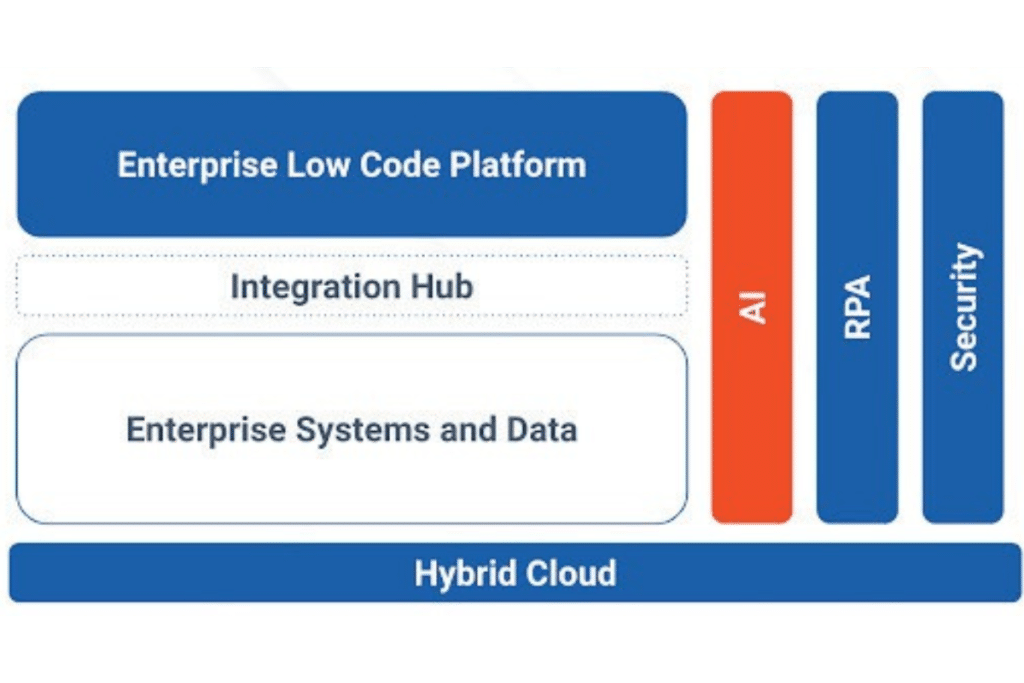
Artificial Intelligence (AI) is quickly transitioning from a handful of employees experimenting with ad-hoc generative AI solutions to becoming a top enterprise priority to enhance the organization’s digital experiences. With this shift, companies are starting to ask the overarching questions around how to best enable AI – and more importantly, how do we scale and integrate it sustainably?
Harnessing AI’s full potential requires more than just early adopter implementation. To produce actionable insights that accelerate organizational change, AI requires a comprehensive, platform-based approach grounded in foundational data and process strategy that extends across the organization.
Most organizations have been forced to approach their AI 1.0 journey in a siloed manner with point solutions that are starting to create large technical debt for Enterprise IT. By continuing to implement transitional solutions in this manner, companies will experience further issues with scalability & reliability and may increase their exposure to information security and data leakage risks. Emerging technology, such as GenAI, needs to be able to be incorporated seamlessly and be easily maintained.
That is why we believe in a Platform Approach to Artificial Intelligence. Architecture needs to account for scalability and reliability but development cycles must be agile. Building real-world, business-ready actionable AI requires a data and process foundation. Clean, secure, accessible data coupled with quick-to-implement enterprise low code process automation tools augmented with Gen AI capability is the secret to sustainably unlocking the potential of AI.
Organizations face several common barriers to operationalizing AI such as:
- The concerns around data privacy, IP protection, and responsible use of AI.
- The need to acquire specialized experts in data science, software engineering, system architecture, and MLOps.
- The risks associated with this effort, given how fast the technology is evolving and the lack of in-depth understanding about it. Some of the risks are the extended delivery time, shifting requirements, unexpected costs, and unforeseen challenges.
“Gartner expects that by 2026, enterprises that have adopted AI engineering practices to build and manage adaptive AI systems will outperform their peers in the number and time that it takes to operationalize artificial intelligence models by at least 25%”
Source: Gartner Top 10 Strategic Technology Trends 20203
Actionable strategy needs to be followed by AI Enablement
Examining your AI roadmap through a program lens will maximize the value of your investment and drive your AI enablement program. Consider these things:
- Take time to prioritize opportunities in your roadmap.
- Establish the foundational capabilities your team needs to make AI successful, including the operational capabilities required to ensure it runs successfully like the rest of your enterprise technology.
- AI-enable different business processes based on the prioritized opportunities.
- Transfer knowledge to your internal teams as you move along your AI journey.
By taking a structured platform approach to explore the impacts of AI on your business, you will be able to lay the groundwork for future AI initiatives. Harnessing the power of AI on top of your data and process automation strategies will enable you to incorporate & maintain emerging technologies, such as GenAI, seamlessly and easily.
How can we help you? We understand enterprise, we understand automation, and we understand AI
As data integration and process automation experts for 20+ years, Bits in Glass is known for working with clients to unlock the potential of their data and systems. For over two decades, BIG has been designing, building and managing solutions to enable organizations to enhance customer experience, increase productivity and reduce operational risk. We help clients transform their data and technology ideas into real-world initiatives to create business value.
Contact Us today to learn more about how Bits In Glass can help your organization identify high-impact AI use cases, define a roadmap, and help you integrate AI successfully into your business processes.


